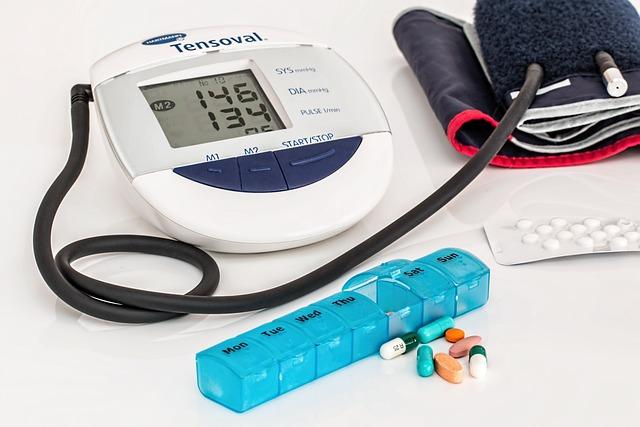In the intricate tapestry of human well-being, the threads of emotional and physical health are often woven together in ways that are both profound and mysterious. While it is easy to consider our emotions and our bodies as separate entities, science and personal experience alike suggest a more interconnected reality. Imagine the heart that races with anxiety, the shoulders that tense with stress, or the immune system that falters under the weight of chronic sadness. These are not mere coincidences, but rather, hints at a deeper symbiosis between how we feel and how we function. In this exploration, we delve into the compelling question: Can emotional health impact physical health? Join us as we unravel the scientific insights, personal stories, and timeless wisdom that illuminate the powerful interplay between mind and body.
Understanding the Mind-Body Connection
In recent years, the intricate dance between our emotions and physical well-being has captured the attention of both scientists and wellness enthusiasts. It is now widely acknowledged that our emotional state can significantly influence our physical health. Stress, anxiety, and prolonged emotional distress have been linked to a variety of physical ailments, ranging from heart disease to weakened immune responses. Research has shown that emotional turmoil can trigger the release of stress hormones like cortisol, which, when chronically elevated, may lead to inflammation and other health issues.
Moreover, positive emotional health is equally powerful in fostering physical resilience. Practices that enhance emotional well-being, such as mindfulness and meditation, have been found to improve physical health outcomes. Key benefits include:
- Reduction in blood pressure
- Improved sleep quality
- Enhanced immune function
- Increased pain tolerance
Thus, nurturing our emotional landscape is not just a mental exercise but a holistic approach to ensuring a healthier body. As the boundaries between mind and body continue to blur, it becomes imperative to recognize the profound impact emotions have on our physical state.

The Science Behind Emotions and Physical Well-being
Understanding the intricate connection between our emotional and physical health is a subject of great intrigue and ongoing research. When we experience emotions, our body undergoes a series of physiological changes. For instance, stress can trigger the release of hormones like cortisol, which, in high amounts, can lead to a range of physical ailments. Conversely, positive emotions can boost the immune system and promote healing. This fascinating interplay suggests that our emotional well-being is not just a byproduct of physical health but an integral component of it.
- Hormonal Balance: Emotions can influence the production and regulation of hormones, affecting everything from metabolism to immune response.
- Nervous System: Stressful emotions activate the sympathetic nervous system, which can lead to increased heart rate and blood pressure.
- Immune Function: Positive emotions have been linked to enhanced immune function, potentially reducing the risk of illnesses.
- Chronic Conditions: Ongoing emotional distress may contribute to chronic health issues such as heart disease and diabetes.

Practical Steps to Enhance Emotional Health for Physical Benefits
To fortify your emotional well-being and reap the physical benefits, consider adopting some practical strategies into your daily routine. Mindfulness practices, such as meditation and deep-breathing exercises, can significantly reduce stress levels and promote a sense of calm. Engaging in these activities regularly helps in managing anxiety and can lead to improvements in sleep quality and immune function.
Incorporate activities that bring joy and satisfaction into your life. This might include hobbies, creative pursuits, or simply spending time with loved ones. Building a support network of friends and family can provide a strong foundation for emotional resilience. Additionally, physical activities like yoga or tai chi not only enhance physical health but also boost emotional well-being by releasing endorphins, the body’s natural mood elevators. Consider integrating these steps into your lifestyle to cultivate a harmonious balance between emotional and physical health.
- Practice mindfulness and meditation.
- Engage in joyful activities and hobbies.
- Build a strong support network.
- Incorporate physical activities like yoga or tai chi.

Integrating Emotional Care into Daily Health Routines
Incorporating emotional care into our daily health routines can be transformative, creating a ripple effect that enhances overall well-being. Mindfulness practices such as meditation or yoga not only calm the mind but also nurture the body. These activities have been shown to lower stress hormones, which can positively impact physical health by reducing inflammation and improving heart function.
Consider adding simple habits to your day that cater to emotional wellness. Here are some ideas:
- Journaling: Reflect on your emotions and experiences to gain clarity and release tension.
- Gratitude Lists: Write down things you are thankful for to boost mood and resilience.
- Nature Walks: Spend time outdoors to improve mental clarity and reduce stress.
- Breathing Exercises: Practice deep breathing to center your thoughts and lower anxiety.
These practices, while seemingly small, can lead to significant changes in how you feel physically. By integrating emotional care into your daily routine, you foster a holistic approach to health that honors both the mind and body.
The Way Forward
As we draw the curtains on this exploration of the intricate dance between emotional health and physical well-being, it becomes evident that our bodies and minds are not isolated islands but rather intertwined realms, each echoing the other’s rhythms. The symphony of our health is composed of notes both seen and unseen, where a harmonious balance can lead to a life resonant with vitality. As we navigate the ebb and flow of our emotional landscapes, let us remain mindful of the subtle whispers our bodies convey, urging us to nurture both heart and vessel. In this ongoing journey, may we find strength in awareness, peace in understanding, and health in the union of our emotional and physical selves.




